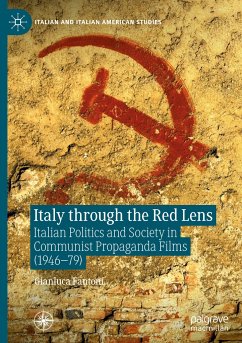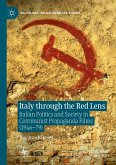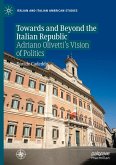This book offers the first comprehensive analysis of the role of cinema in the communication strategy of the Italian Communist party (the PCI). It examines the entire period during which the party had a systematic and organized approach to cinematographic production, starting with the early experiments in 1946 and concluding with the closure of PCI film company Unitelefilm at the end of the 1970s. Its analysis sheds light on a range of issues, such as the relationship between the party and Italian intellectuals, the Stalinist imprint of the Italian Communist Party and the historical significance of the Salerno turn, the PCI's relationship with the student movements in 1968 and 1977, and the PCI's response to the rise in political violence in the 1970s. Ultimately, the book demonstrates that cinema was essential to the PCI's propaganda effort.
"Fantoni presents us with a fascinating, richly researched, and marvelously written work. In any format, this book wins the reader." (Roy Domenico, Annali d'italianistica, Vol. 40, 2022)
"The book presents a fascinating history of ideological clashes between the PCI and various others ... . Overall, however, the structure and the content of the volume function efficiently, and it is written in an engaging and captivating style. Italy through the Red Lens is a timely contribution that will undoubtedly prove to be an invaluable resource for scholars and students alike." (Dom Holdaway, Modern Italy, October 20, 2021)
"The book presents a fascinating history of ideological clashes between the PCI and various others ... . Overall, however, the structure and the content of the volume function efficiently, and it is written in an engaging and captivating style. Italy through the Red Lens is a timely contribution that will undoubtedly prove to be an invaluable resource for scholars and students alike." (Dom Holdaway, Modern Italy, October 20, 2021)








